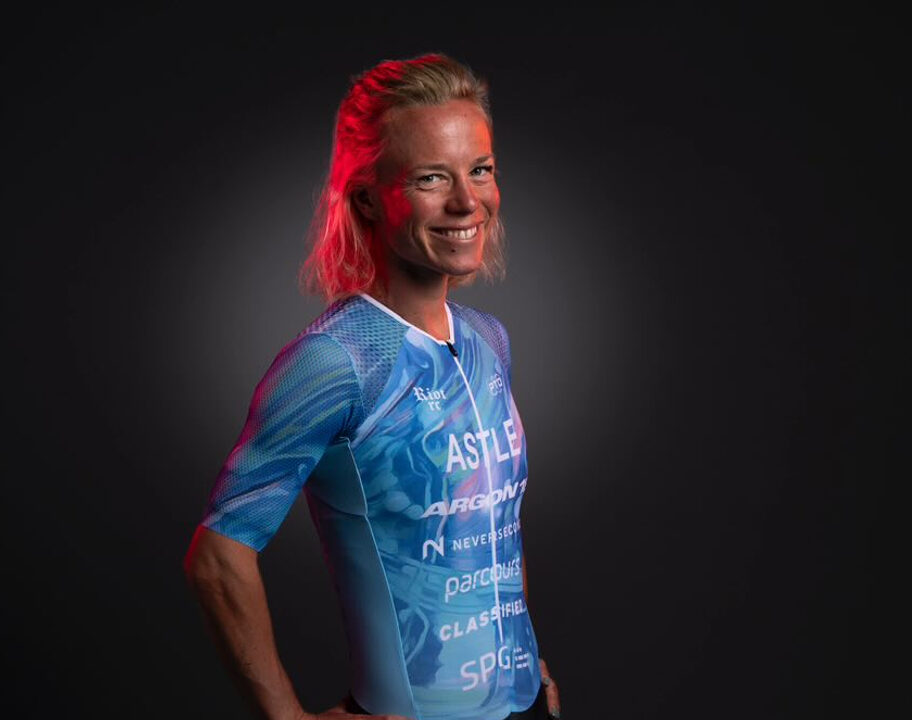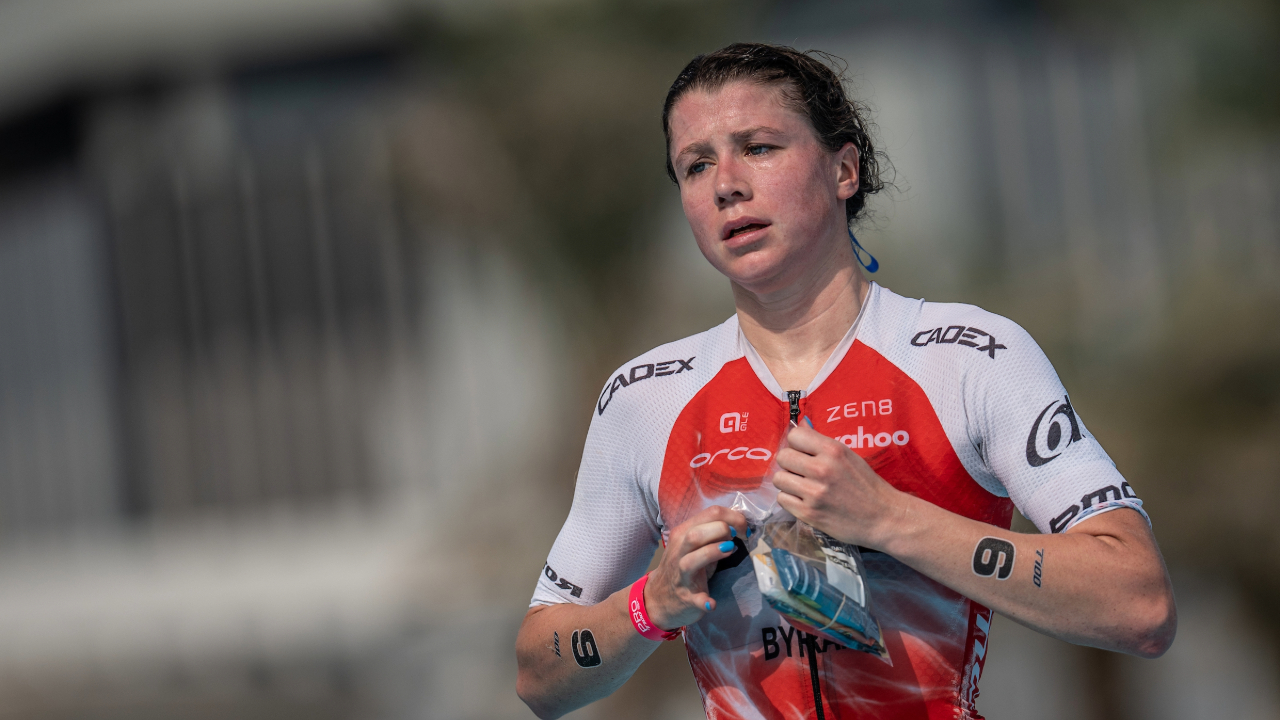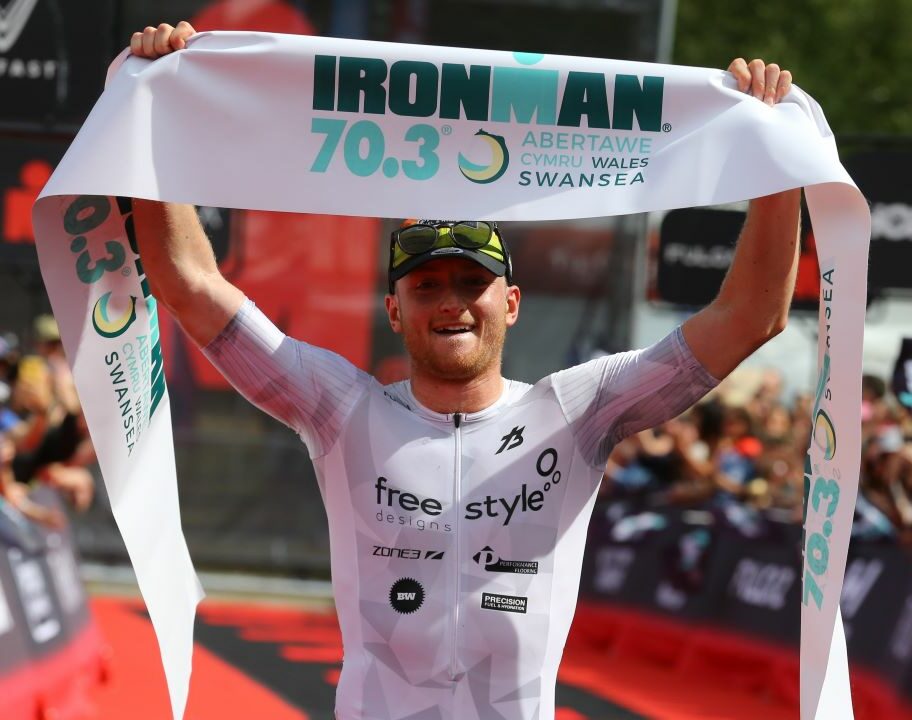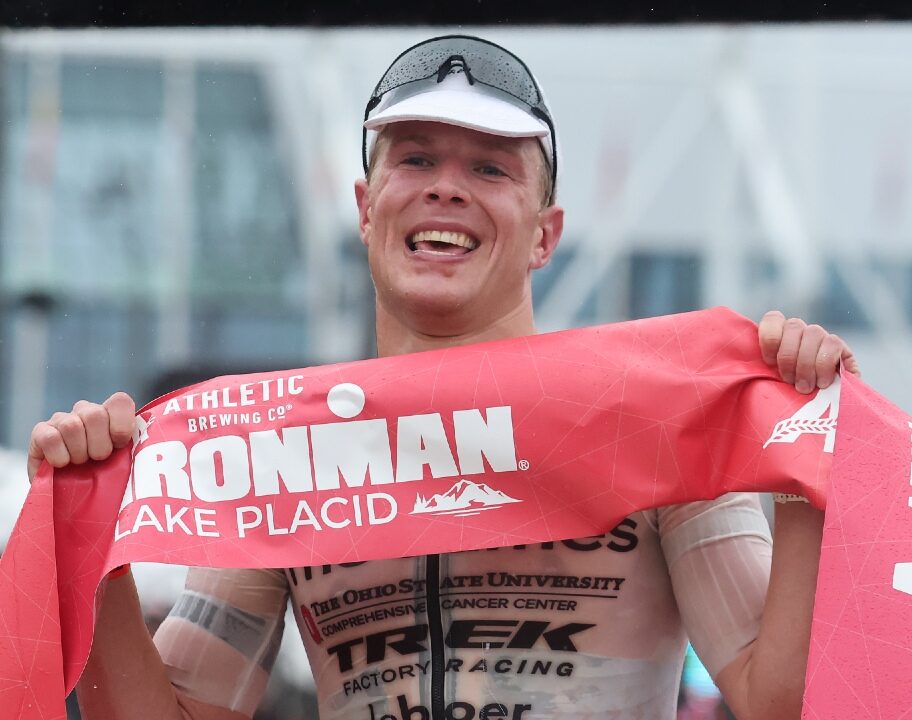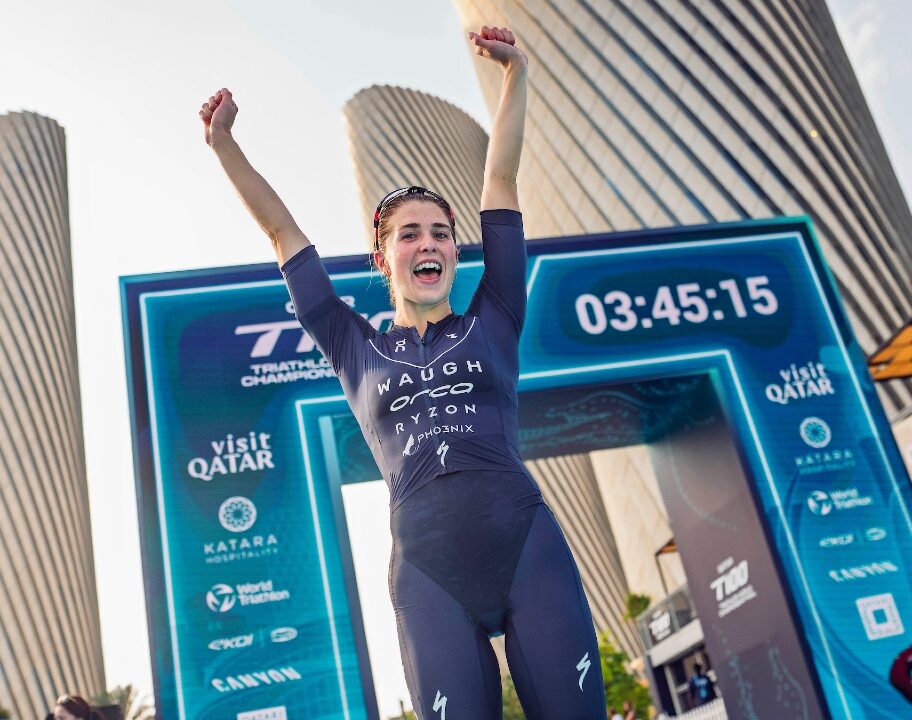The tragic events of IRONMAN Hamburg on Sunday have cast a long shadow over the sport of triathlon this week.
There have been many emotions expressed – anger, tears, frustration and sympathy among them – but how do we move forward as a sport, and not let the events of Sunday June 4, 2023 be merely consigned to history?
There are no easy answers, but here are some initial thoughts.
Never forget
We should never forget that somebody died while working on this race on Sunday. That is, by far, the most important starting point for any discussion. A family is in mourning, while an athlete and a camera operator will be dealing with the impacts, physical and mental, of these events.
Many others will be impacted too, directly and indirectly, from the traumatic aftermath of what happened this past weekend in Northern Germany.
At a challenging time, empathy should be the priority. How the sport reacts, I believe, will be the ultimate measure of the respect that ‘we’ show, and the evidence that this does not slip quietly into history.

Profile
In a challenging endurance sport such as triathlon, unfortunately deaths (of competitors) happen far more frequently than anyone wants to see. But this situation, while perhaps not unique, is certainly far more unusual. That the race was high-profile, the incident so shocking and the event broadcast widely, means that the eyes of the non-triathlon world are also on us. Every major news outlet in the world, from the BBC to the Washington Post to CBS News and more have covered this event. That’s the modern world.
In a similar manner to Collin Chartier’s recent positive doping case – which was far from the highest profile triathlete to have been caught – the impact is far greater now than the historic cases of say Nina Kraft, Brigitte McMahon or Dmitriy Gaag, when it happens in a digital world.
The result? This absolutely cannot be ignored – ‘we need a change, no discussion’ as Lisa Norden said.
It could happen anywhere
Triathlon, as we have already stated, is not immune from tragedy. Neither are other endurance sports. In 2016 a professional cyclist died after a collision with a motorbike at the Gent-Wevelgem race, while there have been multiple instances of riders being hit by team cars during racing in recent years, including at major events like the Giro d’Italia and the Tour de France.
I think it’s also not unreasonable to say that this could have happened at an event not under the IRONMAN brand, and that to look at this blindly as a problem for IRONMAN to solve, would be naive. The Tampa-based operators are by far the biggest brand in the sport, but if there are lessons to be learned, then those lessons need to be applied to the sport beyond the M-Dot logo too.
Safety first
Obvious yes, and Hamburg highlighted this. Right now, we can’t with certainty pinpoint the specific cause(s) of Sunday’s tragic events – but it is abundantly clear that issues around motorbikes (number of them, density, draft impacts, location relative to athletes and the nature of the roads they are on etc), is a huge concern to the professional athletes racing.
Historically at least, those concerns have often been primarily expressed in the context of the impact on the racing (fairness, drafting impacts), but this should be a reminder that safety is key. It’s quite possible that optimising safety might mean compromise to a degree in relation to possible impacts on the racing or delivery of the product (e.g. broadcast). Compromise may be needed.
Technology
Whatever the findings of what will be doubtless be a raft of investigations, it is evident that the sheer volume of motorbikes on triathlon courses is and has been a persistent issue, concern and frustration. Those motorbikes are there for a variety of very valid reasons – to provide safe passage, media and broadcast purposes, race officials etc – but the volume has consistently been questioned, both in regards to safety and fairness.
Can technology can help? We’ve been following in-detail the progress of draft detection software for example, which was used recently at the PTO European Open and the World Triathlon Long Distance Championships. Of course, the primary focus has been in relation to improving the fairness of racing – but perhaps this situation highlights its potential value in a safety sense, too?
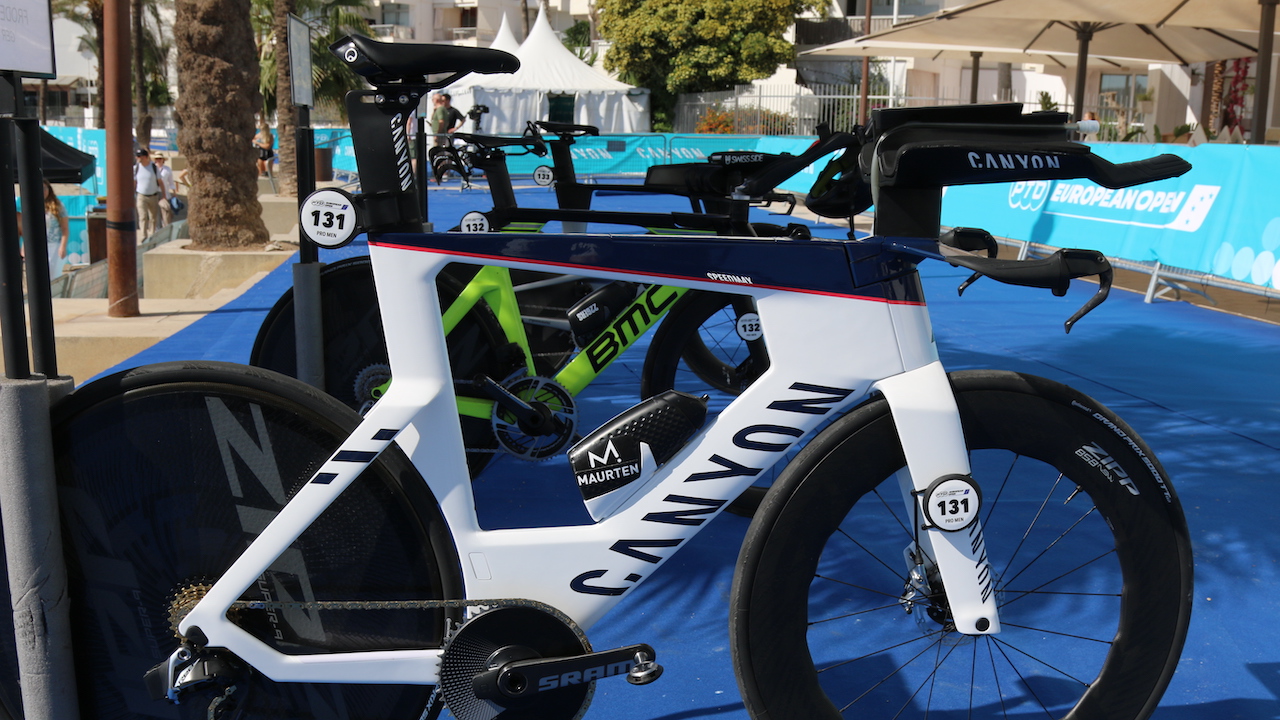
Athlete feedback has been very positive on the technology’s drafting detection aspects, but with continued use, acceptance and trust of the system itself, it seems reasonable that by enhancing objectivity and support to a race official’s decision making, there could also be a benefit of less officials required, reducing moto numbers.
Adopting technology in response to incidents to enhance safety in sport is not new. Taking Formula 1 as an example, recent years have seen the implementation of the Halo and the HANS Device – neither achieved without controversy initially – but have saved many lives since.
Will the PTO be a factor in facilitating change?
This is an interesting, and perhaps not obvious thought.
As we’ve seen – and reported – several athletes have already come forward with thoughts on improvements to safety, changes to the sport and addressing issues that many feel have been building for some time. This is a good thing.
However, how can professional athletes best – as a united group – come together and provide their input as one voice into the process(es) and changes which we hope will follow? What if there was an athlete body with a structure, board and communications channel to help coordinate this…
Athletes have to have a voice in this process, but they will and should not be the only voice. Different skills, experiences and knowledge across a portfolio of event-related teams – including broadcast, health and safety, risk assessment, event directors, traffic management, logistics, technology solutions and many more – all need to have input into that.
This might be a pipedream, but it would be great to see the PTO – ‘An athlete-owned entity that supports non-drafting professional triathletes’ – help provide coordinated input from their particular experience set – and not just to IRONMAN, but every other organiser with whom they work.
Communication matters
What you say, and also how you say it, can have a massive impact of perception. And in this regard, in broadcast terms, IRONMAN dropped the ball massively. This is something that Andrew Messick acknowledged, when he spoke to TRI247 earlier on Wednesday:
“I think we should have gone off air for some period of time, and we didn’t. And we put our announcing team in an untenable situation where they had to talk about a race when everyone who was watching the race knew that something terrible had happened.
“We’ve never had an incident like this, a media incident, a broadcast incident. And it’s clear to me that we need to have similar processes and protocols for critical incidents as it relates to broadcasting.”
I don’t think anyone is going to argue with that. Watching in from the outside, the disconnect between what was actually happening – something terrible – and what was being broadcast, was distasteful and, referring to my introductory point, gave the impression at least of being devoid of any empathy.
What is does highlight is that more risk assessment and planning, taking into account considerations around both broadcast and wider communications, is absolutely essential. It was a very public lesson to learn for Messick:
“Ultimately I have to wear the responsibility for that because we weren’t ready for that eventuality. It’s hard to be ready for every eventuality, but we weren’t ready for that one, and that one’s on me.”
In this area, there was a clear divergence between the approach of the German broadcaster, ARD, who ceased their programming, and IRONMAN who continued.
One vision?
One of my biggest takeaways from the weekend’s events and my thinking since, is that that this is a triathlon issue, not simply an IRONMAN one. Of course, these tragic events happened on live TV at a high-profile German IRONMAN event witnessed by many. IRONMAN, of course, will be going through many investigations, reviews and be collaborating with vast numbers of local authorities, police, federations and more.
The response – as a sport – needs to be wider than simply the M-Dot logo. I’m reminded by the closing comments of my recent interview with Super League’s Will McCloy, and the historic ‘islands’ nature of a fragmented sport. Will referenced some of the collaborations that have been happening.
The mistakes, learnings, solutions and hopefully changes for good that come from this tragic situation must be utilised and shared beyond any one brand.
Achieving that, might be the biggest positive that could come from an otherwise desperate situation. If we can’t work as one now, when can we?








